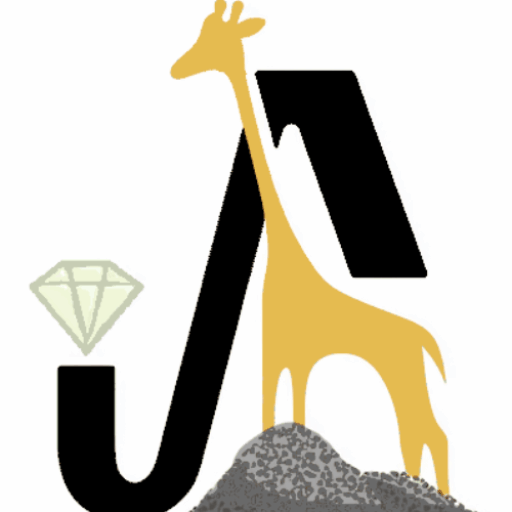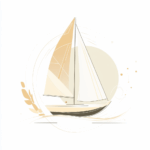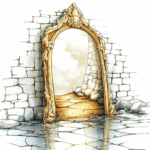Click play to listen to a deep dive podcast – like overview of this story. This summary is AI generated, and some elements may be not be accurate. –>
How old are we when we no longer want to blow all of the dandelion seeds we can find? What about the age we are when one million of something does not feel like the biggest number in the world?
I wanted to be a “payer” until I was about 10. This is what I called a cashier. I wanted to keep all the money that we gave them when we went to Target.
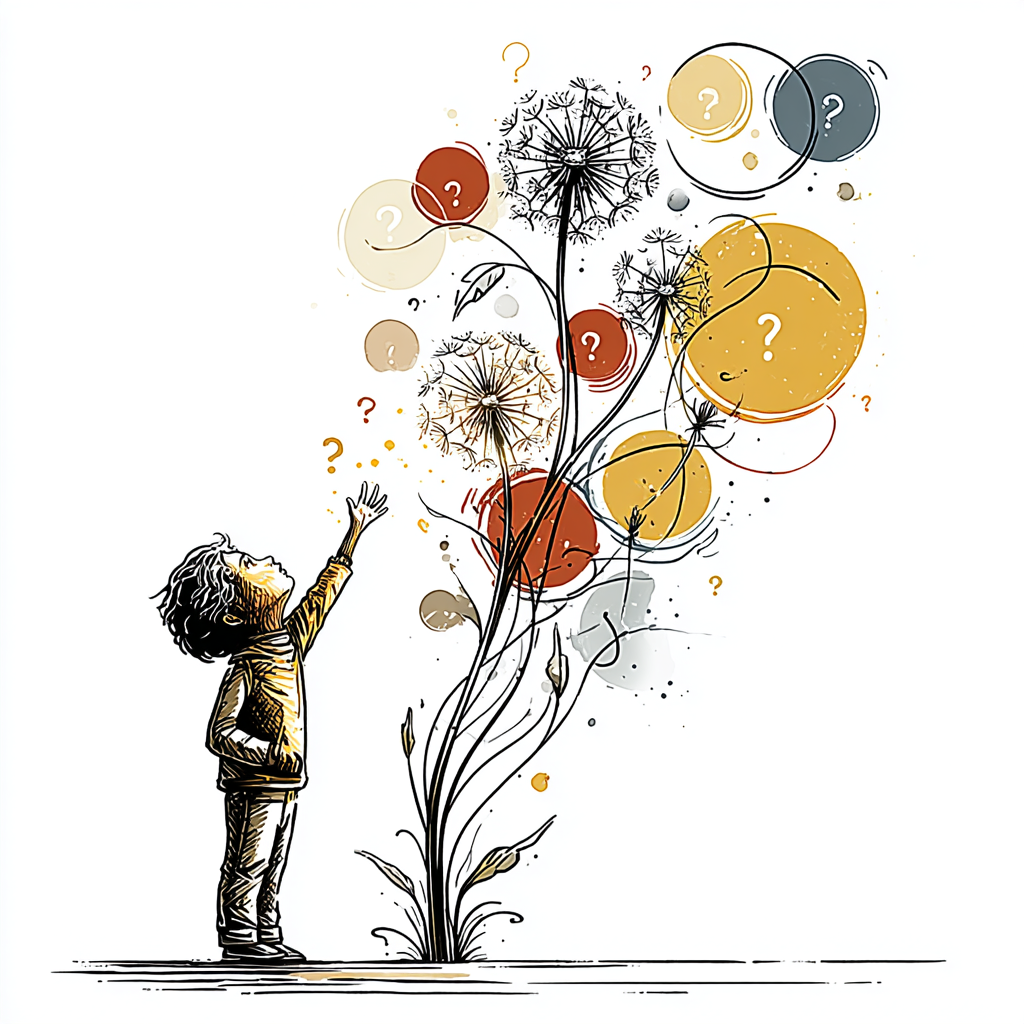
Kids are curious. Almost as a universal trait. As a kid I felt like there was so much to be known in the world, and I knew almost none of it. It wasn’t until I started to get older that this not knowing was scary for me.
Even now, in my personal life, I feel like I am full of questions. Why things are the way they are, how long have they been that way, what was the history that led to it, why do we still do it?
I feel like I am perpetually curious.
I go down rabbit holes, often with my husband, that are not productive at all. They are just fun, and interesting. We connect, and learn more about the world. That’s literally it, and I love it.
Traditionalist is not an adjective I have ever used to describe myself. For as long as I can remember, I have felt fairly forward facing, dare I say, even curious about the world, cultures, people, everything.
Growing up, I loved school. Exploring topics, and learning more about the world was so exciting to me. When I worked at Coors, it was fun to try new beers, talk with the experts I was lucky enough to be around.
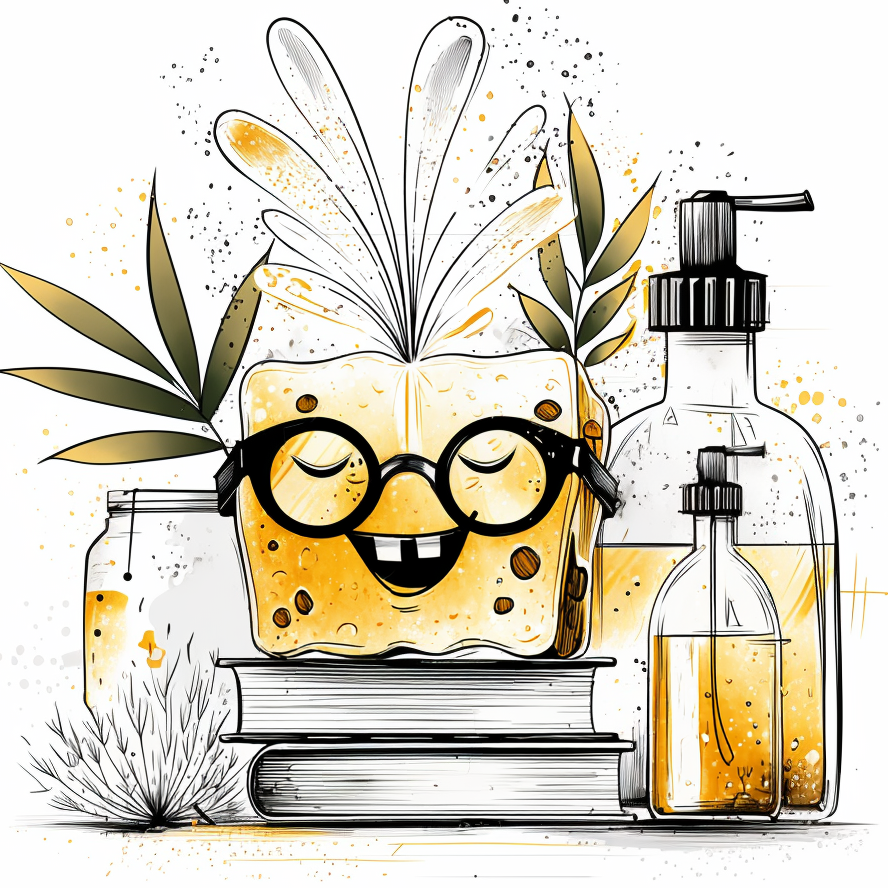
I was like a sponge. It was important to know the why of the words I was saying as a tour guide, not just memorize a script. How did we learn these things worked? How many times did it have to fail first? What made Bill Coors decide recycling aluminum was important? (I mean… it’s a business, so money was often the answer deep down.)
Then, the more and more information I gathered the more aware I was of what I didn’t know. For the most part, even that was still exciting. The rabbit holes I would explore were almost fun.
When I saw that I was going on a journey of curiosity, I was pretty excited. It sounded like a lot of fun!
After making the list, learning a new random fact seemed like a natural place to start. When I think about curiosity, this is usually where I land. Knowledge seeking. Being a life-long learner is something that is important to me.
My dad has told me (who knows if he remembers now) “if you’re not learning you’re not living.” and “life is for the living.” Both of those phrases have stuck with me. There are so many ways to be learning and growing these days, and random facts are such a fun way to start.
So, as I have been a lot lately, I asked Gemini. To be honest, I am not sure I was even consciously aware that it was “curiosity week” as much as it was my way to avoiding boredom.
Gemini told me silly laws in the US, and let me tell ya, there are a lot. There I was, laying in bed, reading them to my husband, and wondering why?
I was curious about my curiosity experiment.
Then I would ask more about the context, and what made that law necessary? Where did this come from? When did it start? What would happen now if I drive a black car in Denver on Sunday? Which, I’m pretty sure I’ve done before.
Turns out, nothing usually. But was I more curious about the history behind these laws.
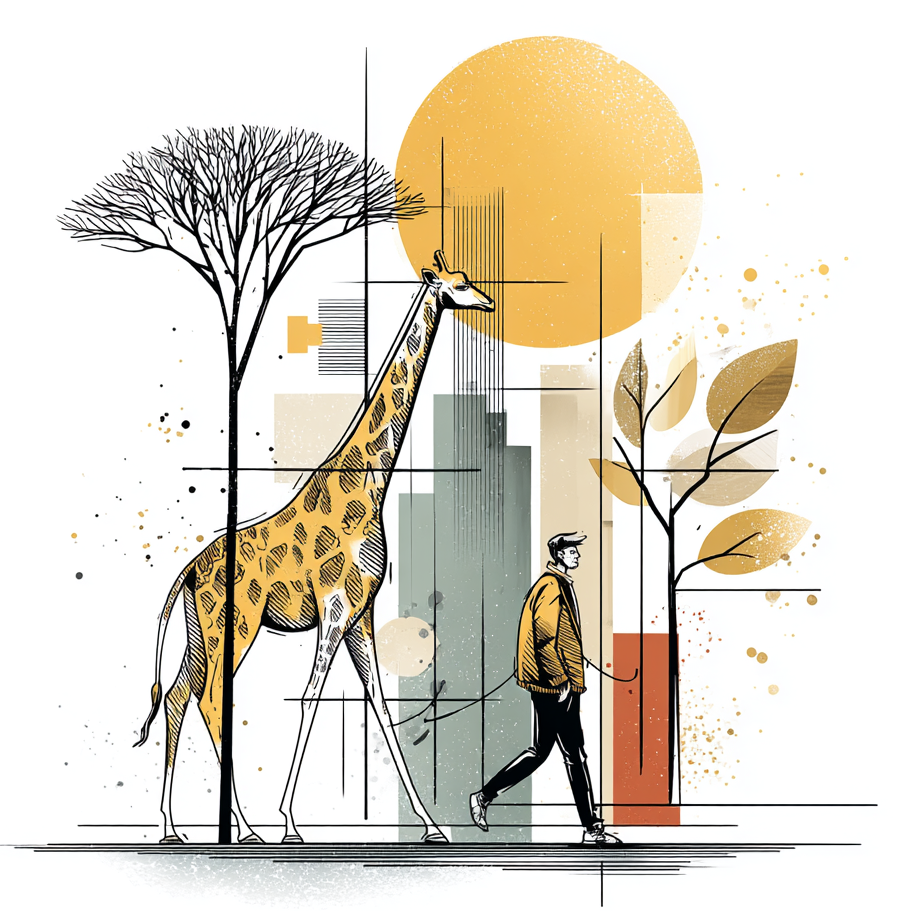
For instance, there is a law that you cannot tie your giraffe to a telephone or light pole. Which brought up so many questions for me initially.
Yet, when I looked into it more, learning it originated many years ago when circuses would often walk their animals through town to the fairgrounds to almost advertise they were there and encourage ticket sales, it started to make more sense. This, obviously does not happen anymore, but could cause a lot of damage if they were not careful.
I also learned more about the values, and where importance was placed throughout history. The laws I still can’t get out of my head involve a cactuses and cannibalism.
They are not directly related to each other, and actually are from different states. Still, i found it surprising that the punishment for smuggling a Saguaro cactus in Arizona (which I didn’t know was a concern) has a penalty that is about two times the jail time as cannibalism in Idaho.
I have been thinking about it all week, and I have tried to make sense of, but still fallen short. I kind of understand, I suppose.
Cannibalism probably does not happen without other crimes being involved. Idaho actually had written in the law that if survival was the reason for the cannibalism, it was no longer illegal.
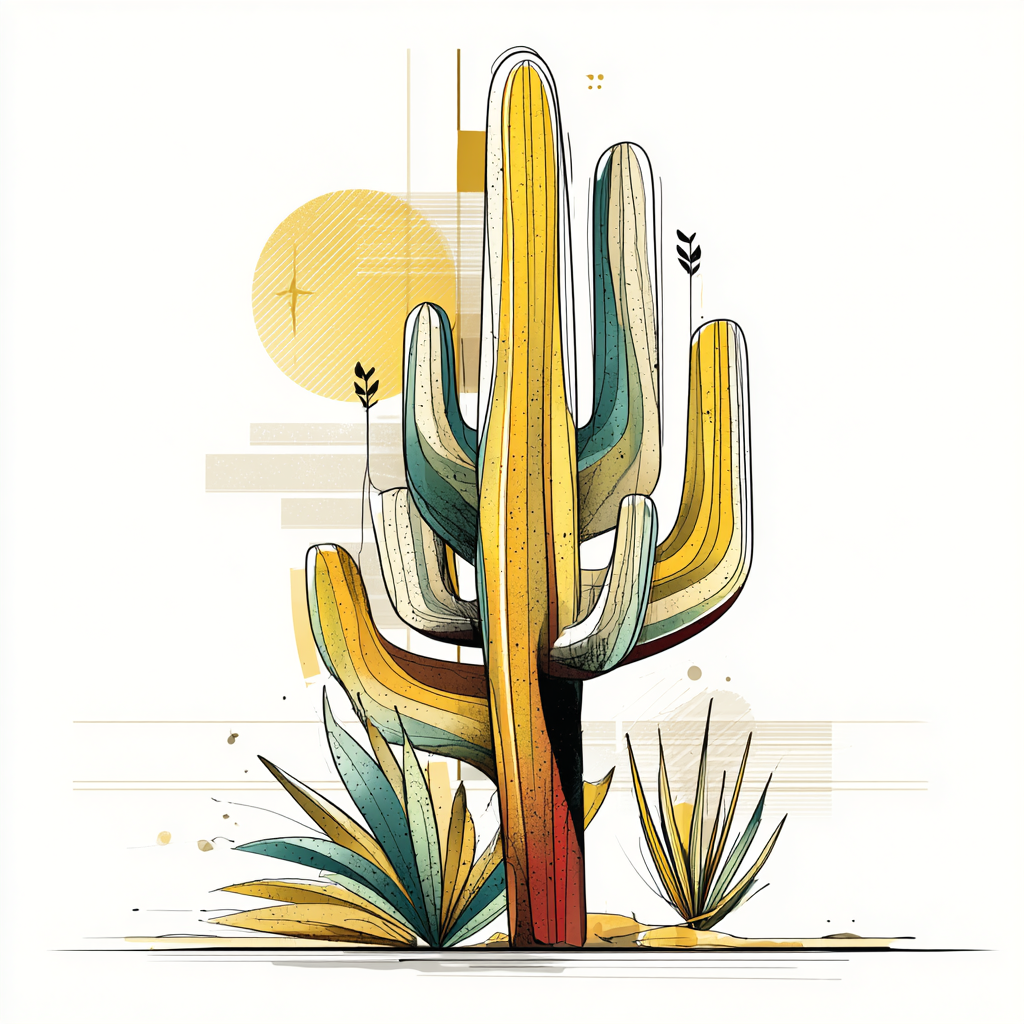
Even with all of the justification, I am still shocked. Smuggling a cactus, no matter how protected, having a harsher punishment than eating a person is wild to me.
Part of my curious exploring this week, I happened upon an app that uses AI to make songs. Suno is the name. I’m not sure if this fits the curiosity them or no, but I made a song. Multiple actually.
They made me laugh. It was fun. Here are some to listen to (remember they were all created with AI, and are just for fun.
During my initial phase of exploring curiosity, I noticed a bias. I found I picked things that either I had some information about, and therefore knew a little about, or picked things I thought I would be interesting or fun.
Suno was my first journey away from that theme. I had never heard of this app before, I was putting ridiculous things into it, and had no idea of what the outcome might be.
Once I started, I realised how much fun it was, and I was able to look past the misses AI can have, and felt drawn to keep going.
It felt like a way to connect with the girls, as we would talk about the songs. Even the bad ones, actually, maybe more the bad ones.
This led nicely to another experience I had over the week. I am not sure I wouldn’t have had it if I wasn’t focused on curiosity, but I do feel it left a deeper meaning with reflection.
My husband had a video he wanted me to watch with him. He had already watched it, and he like it a lot. The only thing he really told me about it was that it had Neil deGrasse Tyson in it, so I assumed it would be about science.
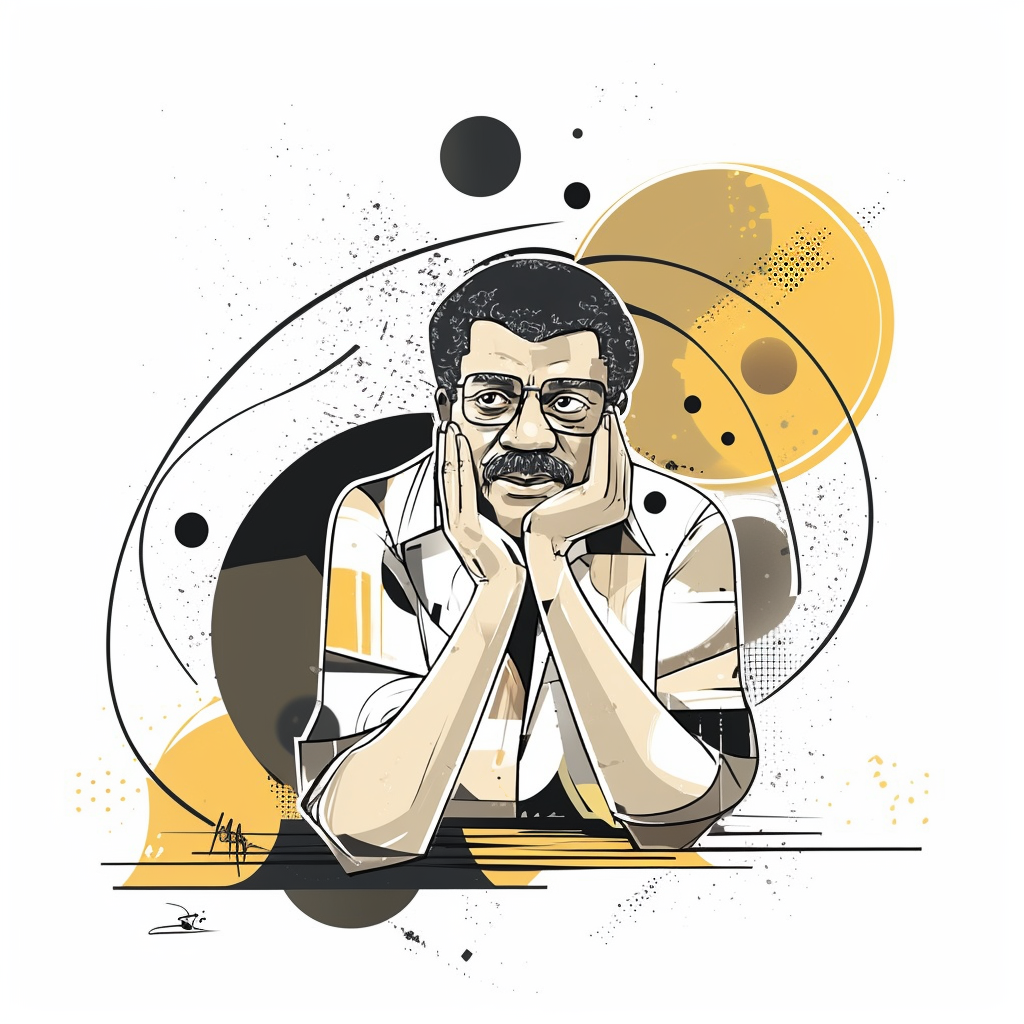
I not the most science literate person, but I have found Neil deGrasse Tyson to be very skilled at discussing sicencey things in a way I sort of understand. Most of the time. He even discussed this in the video.
He shared that he feels he would be doing a disjustice to the science community if he didn’t share his knowledge. Simply because he can, and a lot of his colleagues struggle with connecting with others, or presenting material in a more accessible way.
He is right, he makes it very manageable to learn or talk about topics I don’t think I would otherwise. By throwing funny and fun anecdotes as he goes, it doesn’t feel to heavy for me, and I stay engaged.
He started the interview talking about how much he wanted to be abducted by aliens. It got my attention for sure. I liked that he discussed the idea of, as a scientist, he is not afraid of the unknown. More like it’s his job to be interested in it.
To me that screamed curiosity. He talked about how education and science programs, often government funded, are the source of many of the advancements in science. More or less because scientists have the funding to just be curious.
This, brought up new feelings for me, and the week I spent being curious myself. I allowed myself not to be an expert in what I was doing, try things that maybe I was unsure about the outcome, but also ensure those risks were safe.
Many of these activities were creative, or about knowledge seeking. Two things I already know I enjoy, yet still in areas I was willing not to know the answer yet.
As I grow up, I have less and less areas of my life that I allow myself to genuinely not know the answer… or at least an answer. I have started to feel that I should know something, or my being curious was not important.
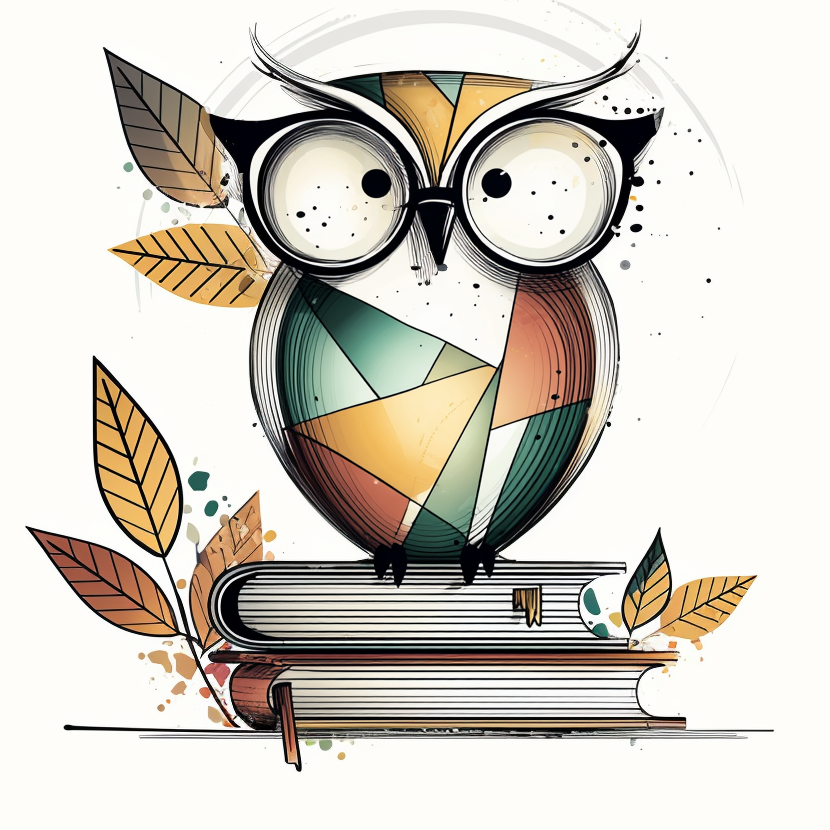
This was not because I wasn’t curious, it was more fearing judgement from others. I would think maybe what I was curious about wasn’t important, or valuable, or productive. No one directly told me that made curiosity less important, but that was my worry.
The more I think about it now, it makes me a little sad to think about losing that drive to be curious. At the same time, I think I have started gained it back into my life, but maybe in a different way.
What if being curious, and not knowing the answer, is the catalyst for growing? What if it has the ability to make your world bigger.
There is an element of that that seems inherently frightening. Vulnerable. Life doesn’t have a manual. If you don’t know the answer, you can’t read the spark notes to make sure you’re going to like it before you try it.
What if that action, in and of itself, promotes growth? The risk to be afraid, and do it anyway.
It is vulnerable. Considering the possibility that you might not know what you’re doing, you might look silly, or not even enjoy it right away, but you’re still going to take the risk even knowing that.
Comfort and curiosity almost seem like opposites in this way. It’s uncomfortable to explore the unknown, and be curious about what is there. I don’t want to never be comfortable. Sometimes I also crave comfort, and relying on muscle memory to get through the day.
This is what I take away from a concept in DBT we call “walking the middle path.” More or less, finding a way to build balance between two areas. The idea of a “surprise me,” button, although it very much could fit into the category of curiosity, was not something I was drawn to. I felt I did not have time for that risk.
What does that mean? Wasn’t that the post of this process? Probably. I was hoping to find a way to find comfortable ways to be curious rather than taking risks that felt too risky.
Since starting my journey as a counselor, I have found more ways to embrace safe “adult” curiosity into my practice. Asking questions, and accepting I am not the expert in the room has been almost freeing to me.
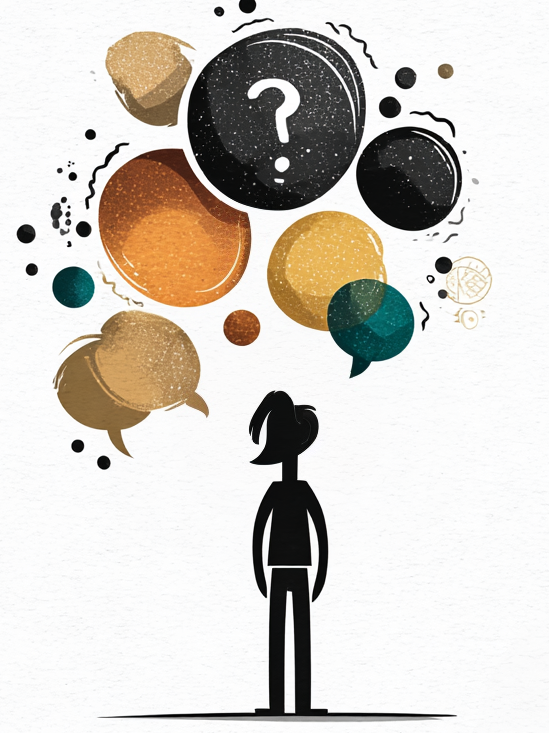
Sure, I may have more education about humans, brains, or mental health than many of my clients do, but they have way more knowledge about their life, their feelings, and their context.
In this way, by accepting and even voicing to clients that I am not the expert, it makes being curious much more natural and effective.
Kids seem to do this so naturally. Part of me wonders why.
As adults, aren’t we smarter, and more knowledgeable? Are we not the teachers of children? Part of our job as parents, or even just older members of society, is to show youth what we know. Right?
What if we don’t know? Then, the more we do know, the more we have awareness of what we don’t know. In turn, this awareness of our unknowing, makes curiosity become more and more frightening.
This uncomfortable with not knowing became even more evident to me with my MS diagnosis.
I wanted just assurance. I’m not sure I had experienced this feeling like this in the past. I wanted someone to tell me the answers. Not just, possibilities.
Weren’t doctors, specialists in particular, supposed to have the answers?
I found that they didn’t. Not just one didn’t, they ALL didn’t. The pharmaceutical companies, making the medication that was supposed to help me keep my body from continuing to attack itself, also didn’t know why it was effective.
How? Didn’t you make it? What do you mean you don’t know?
I did not feel okay, and I wanted them to tell me exactly what was happening, why, and what to do about it. Guessing, being curious about it, did not feel safe, and much less exciting than it used to.
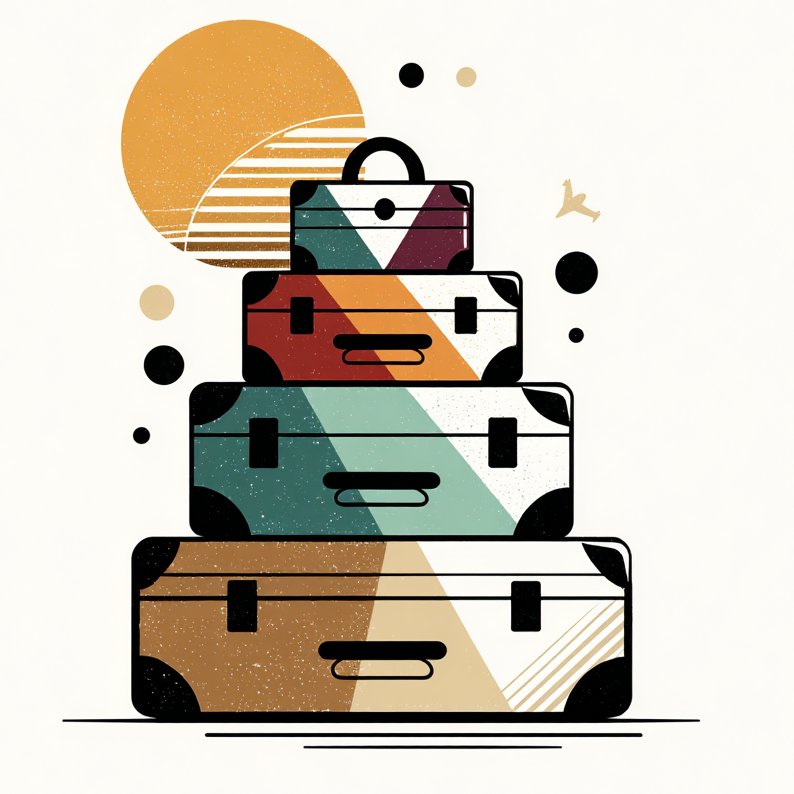
This didn’t end with medical research. It was also with scheduling my daily activities. Being spontaneous, traveling, exploring… activities that I used to very much enjoy, did not feel exciting and fun for me anymore.
They felt unsafe now. If I went somewhere, and I was not able to get home, or had to sit down, or cool down, and I couldn’t… what would I do?
I started bringing all the things with me, I didn’t want to risk anything. A sentence starting with “What if…” that in the past may have been completed with hope, freedom, or fun was now ending with worry, fear, and insecurity.
When I started this week I did not think this is what I would find about curiosity. I was a lot more excited about it than that sentence implies.
And yet, if I did not feel that I would be successful, why would I put effort and energy towards that?
I wanted to be sure that the finite resource my energy had become wasn’t being wasted on something that didn’t help me grow or learn. Then, it dawned on me… what if that is the growth?
I can’t say for sure when this turned for me, but I’m glad it did. I began to allow myself to embrace the not knowing. I started asking more questions, judging less, and simply being interested.
Although I was afraid about this step, because I had a feeling that I was supposed to be the answerer of the questions. I was supposed to know the answers, the opposite seemed to arise from the practice.
I became more okay with the unknowing, and more interested in the process. I felt less worried about the outcome, or feeling like it was my mission to figure it all out.
After starting my role as a step-mom I noticed feeling vulnerable and at times even inadequate. I was, and would never be their mom. This concept had me feeling confused, and at times upset.
What if that wasn’t my journey? What if I can just be curious about where I am needed? It was a mindset shift that did not make me feel sad or left out, it was almost freedom. I get to be “just Jade.”
I started asking more questions, “what do you need?” “how can I help?” “what are you thoughts about it?” Accepting I wasn’t the expert, and that I didn’t need to be, made me feel more content with how things went, because I didn’t have an expectation of the outcome.
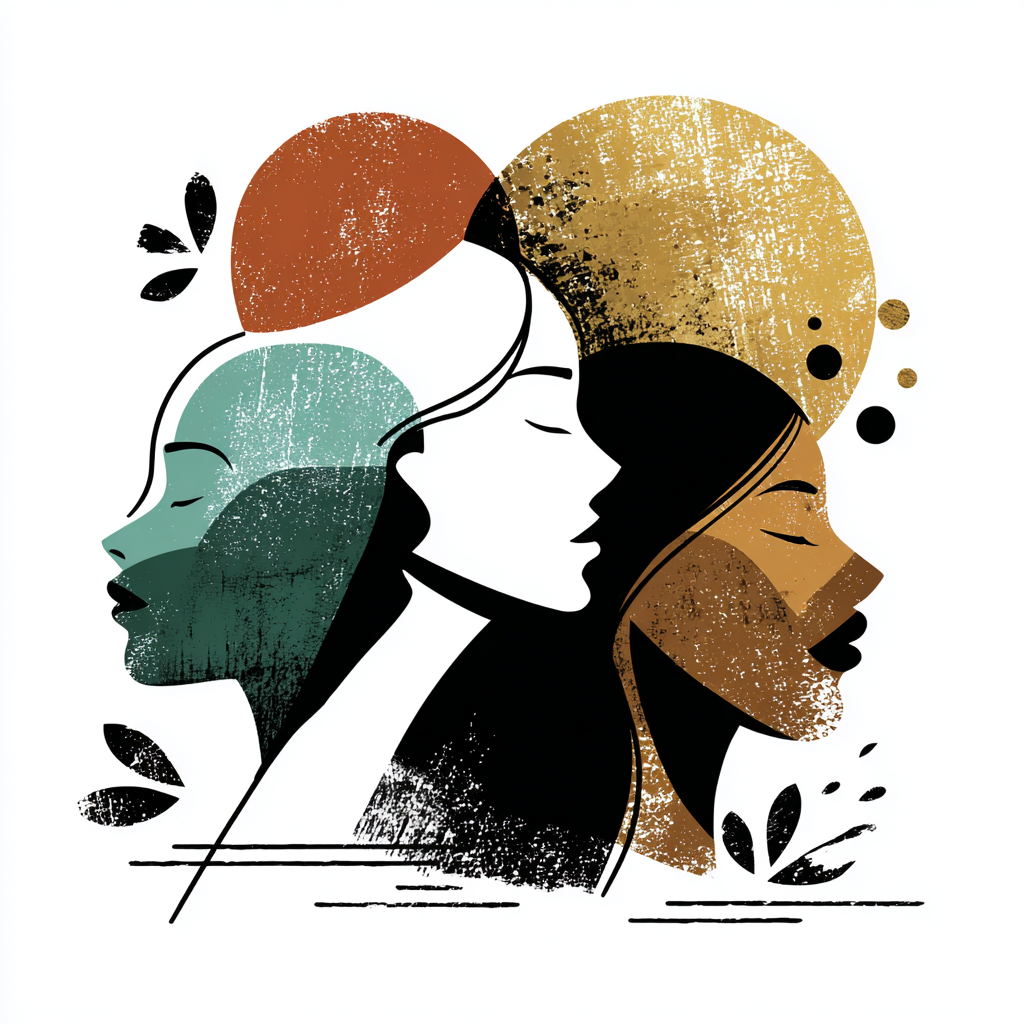
It also seemed like people (both my daughters and clients) were more open when they shared with me. Although I don’t feel like a judgemental person, I felt like this was a simple way to show that. I can’t, and didn’t want to, solve any of the things we discussed anyway. The goal was simply to learn more.
It reminded me, again, of DBT, like non-judgementally looking at our own existence, except it was external. I was content with just, “oh, and what was the hardest part for you?” or, “how were you feeling in that moment?” I got a lot more insight, and so did the people I was talking with.
I didn’t have to try to convince a teenager how she should behave… which is good, because… good luck.
This was probably where the growth happened. It was not necessarily “fun” but it was profound. The “not knowing,” aspect of curiosity started as feeling less exciting to me than it did in the past.
I also feel MS, and my struggles with day to day, has made me feel less curious about the world. I don’t want to see what will happen if I just go without a plan. The risk is so much higher than it used to be.
There is a paradox there for me. On one side, medically I would absolutely benefit from other’s curiosity, as research continues. My hope is almost laying in the hands of scientists who don’t know. Or, others with this disease that are curious if a new treatment might help them.
Their curiosity could possibly lead to life changing results. I am almost desperate for this. At the same, the idea of being more curious and trying “experimental” treatments is something that feels terrifying to me, and not something I feel interested in.
But why? Why was being curious in a way that might actually lead to change, in some cases even a life or death change, scarier than random laws no one enforces?
Well, in the spirit of curiosity week, I don’t have the answer. I’m not an expert. It’s just a question. I have a feeling I am not alone in that feeling, but I could be wrong.
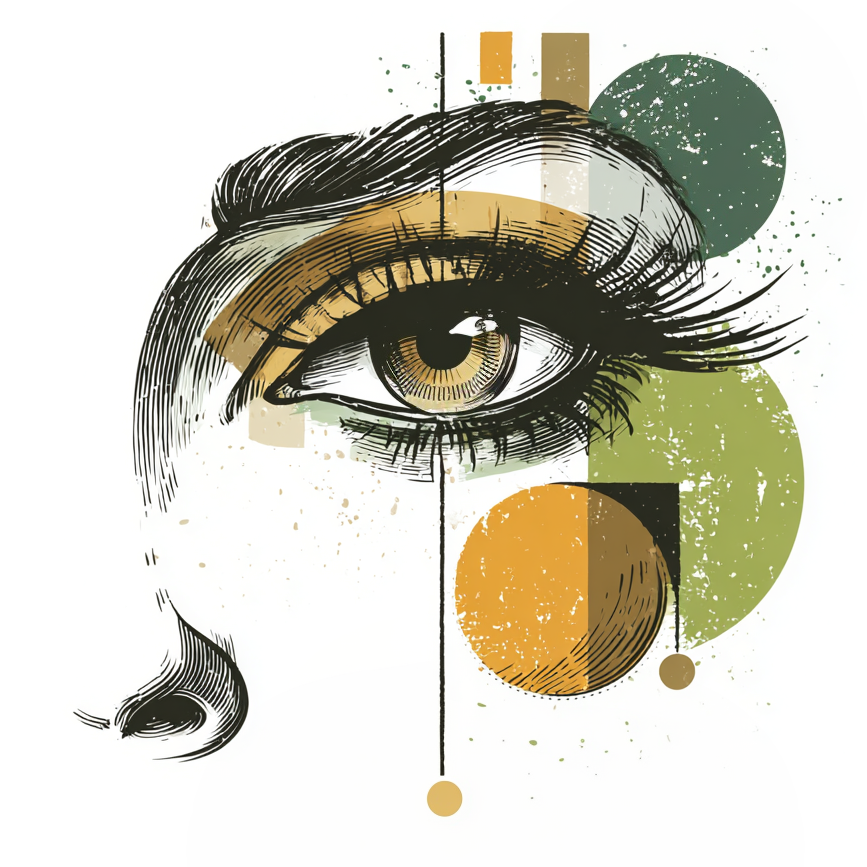
Curiosity week was eye opening for me. I wouldn’t say it “surprised” me, but I very much enjoyed it. I feel like it has taught me a lot about being human.
Similar to Gratitude week, I was not expecting the learning I experienced, and the insight into my humanity. I wonder if we are willing and allow ourselves not to be experts, to fight our case, or prove our “rightness,” what more is waiting for us to learn?
Thank you for reading. If you haven’t already, please head to the Values Compass page to vote for next week’s value exploration!
If you are interested in exploring your own values, feel free to download worksheets, and connect with me at [email protected] if you would like to share feedback about your personal journey in life.
